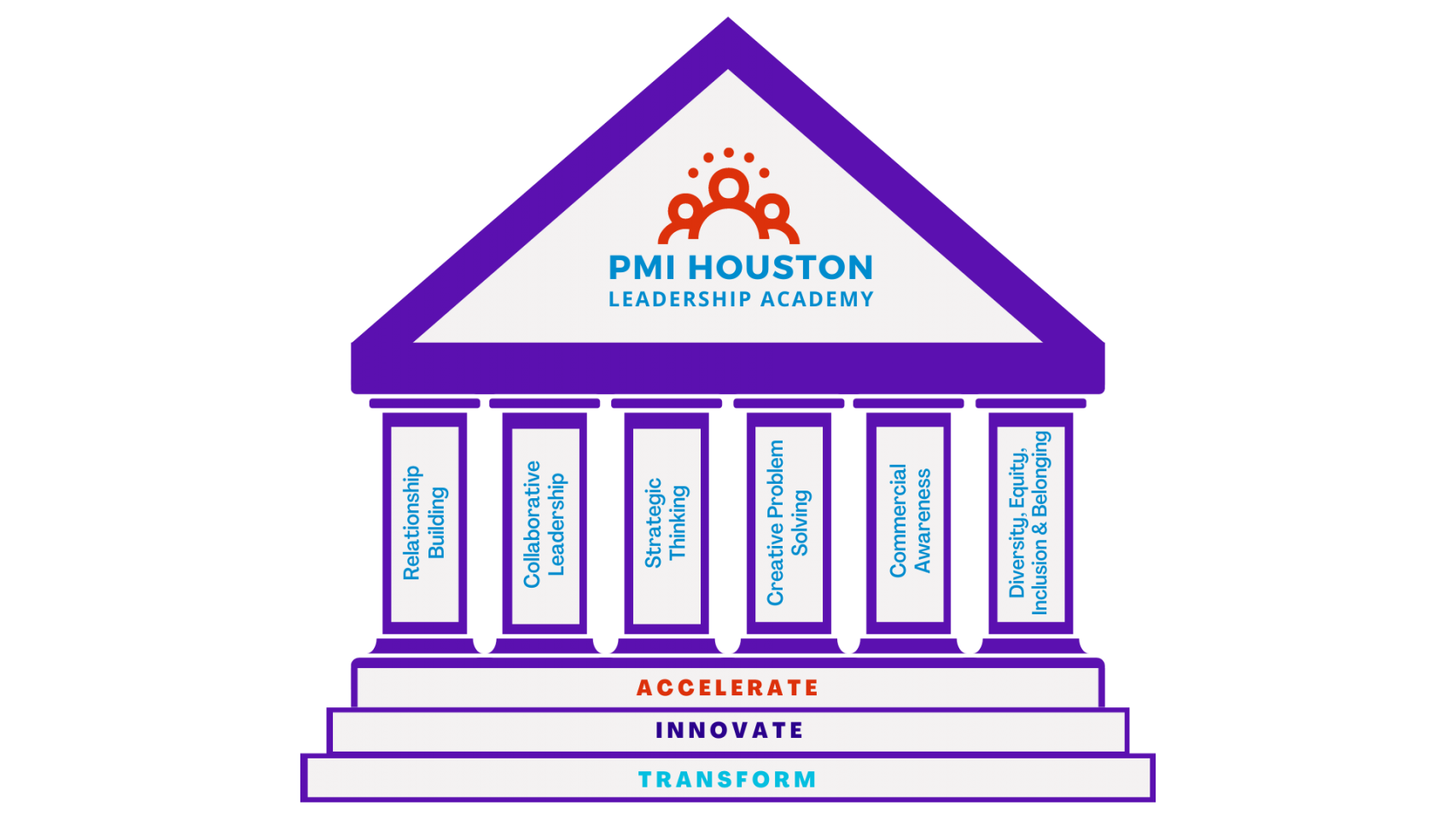The PMIH Leadership Academy (PMIH-LA) Is A Leading-Edge Entity That Provides Professionals At All Levels Across Industries With Leadership And Technical Education And Development Opportunities To Help Them Further Their Careers And Prepare Them For The Future Of Work In Project Management. The PMI Houston Leadership Academy (PMIH-LA) To Become An Accelerator For Innovation And Transformation For The PMI Houston Chapter.
The goals are:
- Develop the next generation of project leaders, helping them optimize their human potential and enable them to adapt, thrive, and lead in a hybrid and technology-focused work environment.
- Offer a shared space for learning and discovery through training, seminars, projects, research, gamification, and other activities focused on furthering PMI’s mission.
- Draw on PMI Global’s vast resources for designing and implementing PMIH Leadership Academy programs.
- Contribute to building, sustaining and growing PMIH’s membership and revenue generating activities.
- Contribute to diversity, equity, inclusion and belonging initiatives and impact the local communities.
- Offer a range of innovative programs and activities geared toward project professionals at all levels: college students, young professionals, and experienced project leaders.
- Enhance the PMIH member experience as both participants and contributors to PMIH Leadership Academy.
- Serves as a platform for the PMIH members to practice Emotional Intelligence.
- Serve as a platform for PMIH members to promote Public Speaking and Communication Skills.
How We Help Our Members

![]()
The project management challenge is now more global, more complex and more customer-driven than at any time in the past. Whoever best meets and exceeds the customer's expectations earns the best chance to win and keep the business. Technical skills to manage the project are not enough—most everyone in the business can make that claim. Your mastery and effective use of interpersonal skills can differentiate you from your competition.
![]()
Focus on followers leading each other. To work collaboratively, project managers must work with other project managers within the project to make sure the project goals are met. Activities must be consistently aligned among projects, communication must be transparent among projects, and learning must be shared among projects.
![]()
Strategic thinking focuses on finding and developing unique opportunities to create value by enabling a provocative and creative dialogue among people who can affect a company's direction. In today’s dynamic and uncertain project environment, project managers must have the unique ability to grow strategic thinking across their professional and personal lives to create their own successful “project recipe” for desired project outcomes.
![]()
The project managers must be ready and willing to solve problems dynamically and must not be frozen in a rigid behavior that leaves no space for new ideas and approaches. By actively moving and applying the mind, and by overcoming conflict, project managers and project teams can arrive at clarity and knowledge that will move their projects forward.
![]()
Working with a Business Case does not require a business degree—but it does call on the project managers to be more attentive to what the organization is seeking to accomplish through the project. When a Business Case is planned and managed effectively, it dramatically increases the likelihood of the project's success—in the minds of all project parties.
![]()
In The Project Economy, organizations recognize they need project teams with a full breadth of perspectives and skills. And that requires true diversity—be it of gender, age, race, experience, sexual orientation, thought, nationality or culture. According to PMI Pulse of the Profession® research, 88 percent of project professionals say having diverse project teams increases project value.
Our Approach
What companies are looking for in the Project Managers and Project Leaders have changed dramatically in the coming decades because of economic growth and increasing projectization. Landing a project leadership position is no longer about industry expertise or successfully managing scope, technology, schedule, safety, quality and budget. It is now about a stronger set of integrated project soft and hard skills.
According to recent industry research, what companies are really seeking today are project managers and project leaders who are able to motivate diverse, technologically savvy, and global workforces; those who can play the role of corporate states person, dealing effectively with all constituents; and those who can rapidly and effectively apply their skills in a new company, in what may be an unfamiliar industry.
The bottom line: companies want project managers and project leaders who are good with people, good communicators, good relationship builders, and people-oriented problem solvers.




